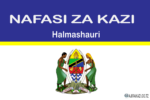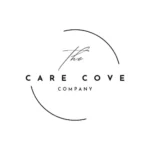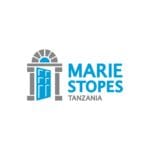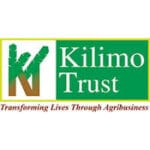AboutInstitute of Marine Sciences (IMS)
The Institute of Marine Sciences was established 17th October 1978 with the mandate to conduct research and offer postgraduate and undergraduate training and consultancy services in all aspects of marine sciences. The institution was established as a recommendation of the 1974 International Conference on Marine Resource Development in Eastern Africa. The conference, which was organized by the Department of Zoology and Marine Biology of the University of Dar es Salaam, had a primary objective of assessing the need and potential for marine resources development in Eastern Africa. Today, the vision of IMS is to become a centre of excellence in the advancement of knowledge in marine science.
Partnership work/projects with the Convention (and associated projects):
i. Sustainable Fisheries Management
The Institute of Marine Sciences (IMS) has a long history of contributing to the sustainable management of fisheries in the country and the region. It evolved from the defunct East African Marine Fisheries Research Organisation (EAMFRO), thus is built on a foundation of solid fisheries research. Recent and ongoing initiatives in this area include:
– Advisory services to fisheries management institutions: IMS is a member of the Technical Advisory Committee of Tanzania’s Deep Sea Fishing Authority (DSFA), the Tuna Research Committee, the Tuna Fisheries Working Group, the Coral Reef Fisheries Working Group (as Chair) and of the Ministry of Agriculture, Natural Resources, Livestock and Fisheries, Zanzibar. IMS is a member of the steering committee for octopus fishery closures in Pemba, Zanzibar. IMS has also been on the Board of the Mafia Island Marine Park (MIMP), the Tanzania Fisheries Research Institute (TAFIRI).
– Research for fisheries management institutions: IMS is currently carrying out research on the status of reef fisheries in Zanzibar and socio-economic studies on prawn fisheries in mainland Tanzania for the sister Ministries dealing with fisheries in the country. It has carried out coral reef monitoring nationally for the past 30 years, fish catch monitoring and periodic updating of the regional fisheries database (WIOFISH). IMS has also, through its Marine Extension and Education Unit, produced over 30 educational videos and documentaries, for use in sensitizing the general public on sustainable fisheries management issues.
– Other research: IMS researchers, students and associated scientists have studied and published papers and reports on a wide range of fisheries management issues, both nationally and regionally. IMS has recently produced reports on Ocean Governance for Africa, and contributed to National and Regional State of the Coast reports, the books ‘Estuaries: A Lifeline of Ecosystem Services in the Western Indian Ocean’, ‘Climate Change and Coastal Resources in Tanzania : Studies on Socio-Ecological Systems’ Vulnerability, Resilience and Governance’, national and regional reports on the status of coral reefs, and the latest Western Indian Ocean Fridtjof Nansen cruise report. Currently, in collaboration with the Nairobi Convention’s SAPPHIRE project, IMS is carrying out scientific data collection in Pemba channel of Tanzania.
– Training: IMS has provided, and continues to provide, training (both long-term and short-term) in the sustainable management of fisheries. The latest example is the 2-week training course in March 2020, on Fish Stock Assessment and the Estimation of SDG 14.4.1, provided to students from the WIO region, in collaboration with the FAO, WIOMSA, University of Bremen and the Technical University of Denmark. IMS has also provided regional training courses in Coral Reef Monitoring (for the Indian Ocean Commission), Identification of fish larvae, Bio-telemetry, Alternative livelihood strategies for fishers, such as dolphin tourism, Value-addition in shellfish fisheries, Seaweed farming and processing. IMS’ MSc and PhD programmes in marine sciences have produced fisheries managers. IMS alumni include directors and principal secretaries in fisheries management institutions and ministries.
ii. Assessment of coastal habitats including seagrass, coral reefs, mangroves and salt marshes
The IMS has been involved in activities related to the assessment and management of the following critical habitats) as follows:
Seagrass:
– Abundance and diversity assessment
– Assessment of fauna associated with sea grass meadows
– Assessment of potential for community-based payment for ecosystem services (PES) schemes
– Seagrass ecophysiology
– Anthropogenic impact on seagrass cover and abundances
Coral reefs:
– Coral reef cover monitoring
– Habitat mapping
– Benthic composition
– Impact of pollution
– Impact of coral bleaching
– Vulnerability assessment
– Coral diseases
– Reef connectivity
– Genetic resilience to coral bleaching
Mangroves:
– Forest inventories
– Carbon stock assessment
– Mangrove ecophysiology
– Assessment of associated fauna
– Assessment of potential for community-based PES schemes
– Long-term monitoring of forest cover
– Assessment of the potential of indigenous knowledge in mangrove resource management and conservation
iii. Rehabilitation/restoration of marine and coastal habitats
The Institute of Marine Sciences is undertaking the following:
– An assessment of the condition and status of critical habitats (mangroves, seagrasses and coral reefs)
– Evaluation of the drivers of change, exerted pressures, impacts and opportunities and challenges of undertaking responsive management measures to ensure sustainability
– Provision of technical support and guidance to state, non-state and communities on the best practices for rehabilitation/restoration of degraded habitats
– Advocate on necessary policy and regulatory reforms to enhance sustainable conservation and utilization of the marine and coats habitats and resources
iv. Building capacities and partnerships for scientific cooperation (Science to Policy)
– Using Science as Evidence in Public Policy encourages scientists to think differently about the use of scientific evidence in policy making. IMS whether alone (staff and its students) or in partnership with other universities and research institutions, nationally, regionally and internationally (such as Sokoine University of Agriculture, Stockholm University, Swedish Agricultural University, Bangor University, Bremen University, Leibniz Centre for Tropical Marine Ecology (Bremen), University of Eduardo Mondlane, Kenya Marine and Fisheries Research Institute (KMFRI), Kenya Wildlife Services (KWS) etc.) undertake research in all fields of marine sciences. Through this, IMS has been very instrumental in building capacity to various governmental institutions, regional and international bodies and private sector through providing policy messages and management recommendations based on scientific evidence generated by research. Besides, IMS staff and its students have been participating in various national and international conferences to convey such messages.
– In 2017, IMS was involved by the UNEP through the Nairobi Convention, to develop an annotated outline of the elements of Ocean Governance Strategy for Africa. Inadequacy of robust science-based mechanisms for continuously assessing and reporting on progress or achievement of objectives of ocean governance was presented as one of the gaps in ocean governance in Africa. The recommended actions to this gap to encourage development of appropriate mechanisms for uptake of scientific and technical outputs into the policy frameworks. As well, recently in collaboration with WIOMSA, IMS is involved in the Work Package 3 (Science into policy) of the SOLSTICE project which aims at identifying governance and management challenges facing the small pelagic fishery in the Pemba Channel, Tanzania and determine how data and information generated from other work packages of the SOLSTICE project could be used to address them.
v. Application of area-based management tools including:
a) Multi-sector tools such as:
• Integrated coastal zone management (ICZM) and planning
• Marine Spatial Planning (MSP)
• Marine Protected Areas (MPA)
• Ridge to Reef implementation
• Ocean governance in areas beyond national jurisdiction
b) Single sector tools such as:
• Particularly Sensitive Sea Areas (PSSAs)
• Vulnerable Marine Ecosystems (VME)
• Key Biodiversity Areas (KBA)
• Important Bird Areas (IBA)
• Fisheries closures in Exclusive Economic Zones (EEZs) and adjacent areas
Enhancing Information and Awareness
The IMS is facilitating information management and exchange, including supporting public awareness activities and campaigns, and community-based resource-management initiatives, through the following:
– IODE focal point
– National Oceanographic Data Centre
– Custodian of MSc and PhD Dissertations and Theses
– Mainstreaming science into policy initiatives in our research outputs
Contact details:
Phone: 255-24-2232128: 255-24-2230741
Fax: 255-24-2233050
E-mail: director@ims.udsm.ac.tz
Institute of Marine Sciences,
Mizingani Road,
P.0 Box 668
Zanzibar Tanzania
Website: https://ims.udsm.ac.tz/










